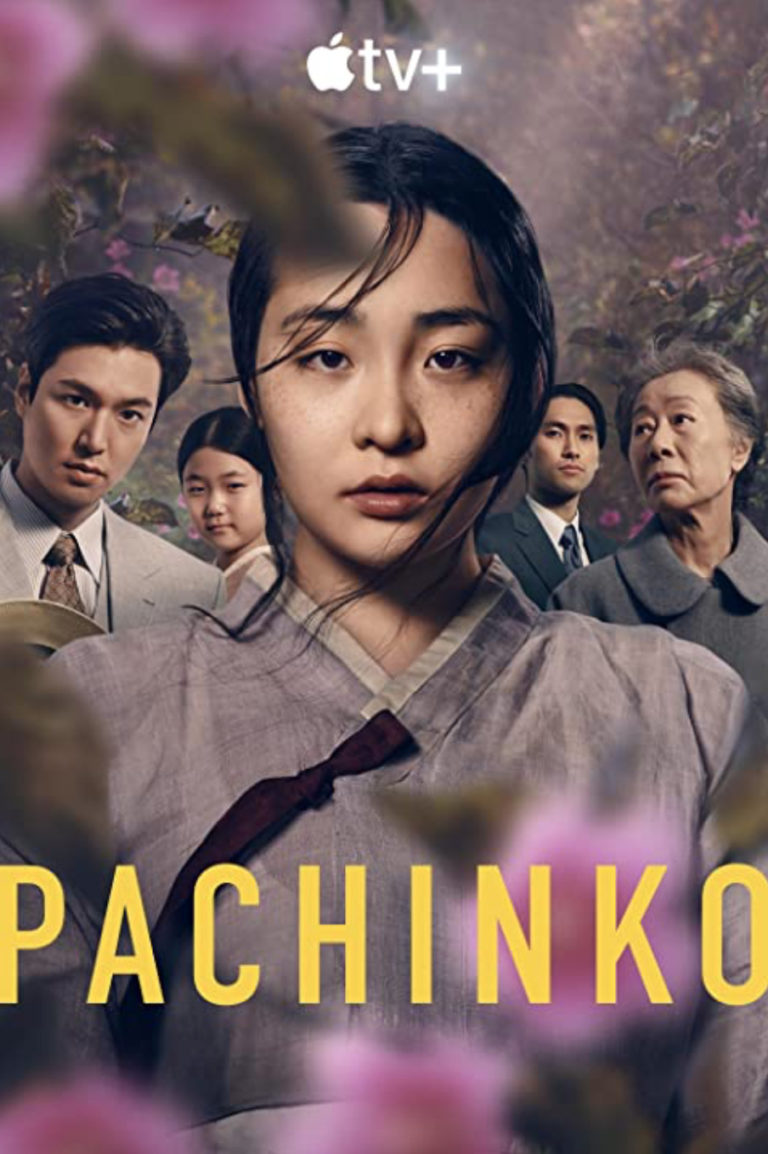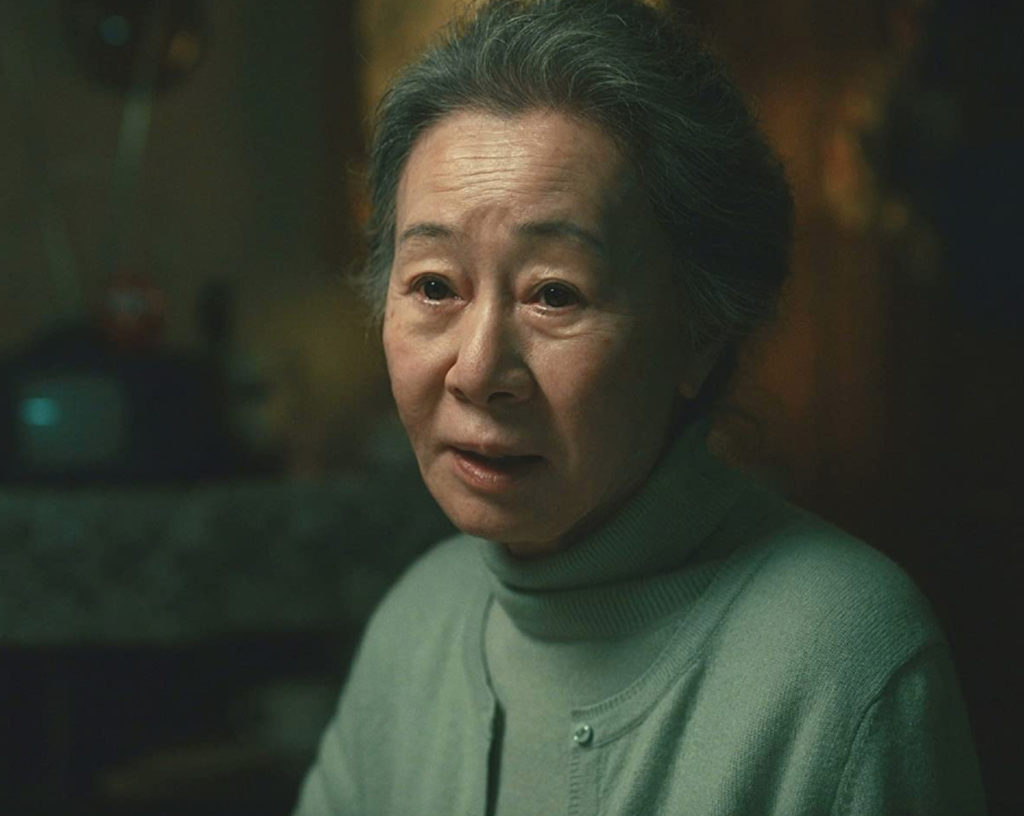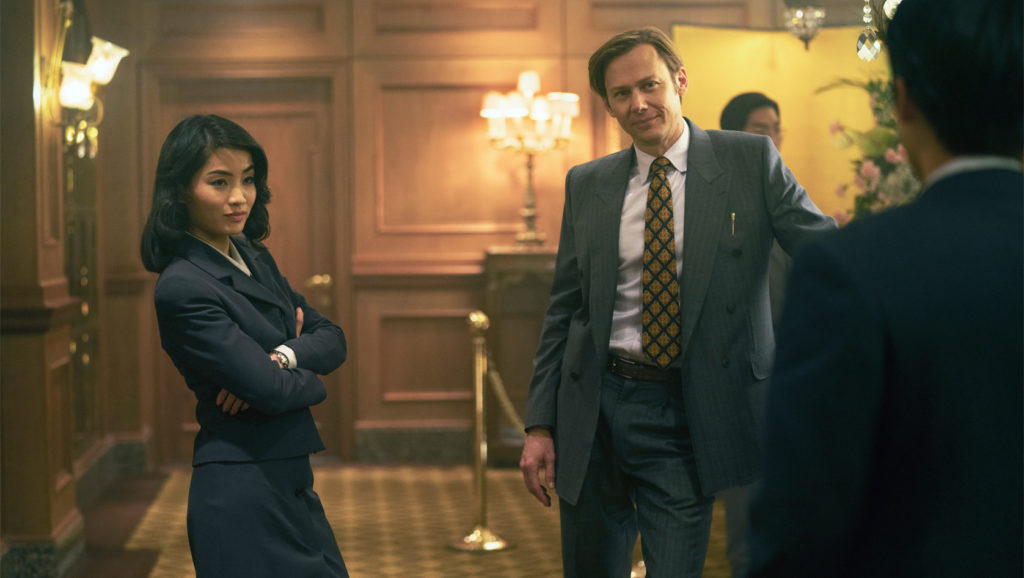
Synopsis : One of the most anticipated series will be released on Apple TV+ March 25, An epic historical tale based on the New York Times best-selling novel by Min Jin Lee. The history dates back to 1910-1990, originating in the Japanese occupation of Korea and leading to the globalization of Japan in late 1980s. At its heart is about a Korean Family who was forced by circumstance to immigrate to Japan to become a Zainichi(Korean lives in Japan)Family, and their struggles against poverty and discriminated are told in Korean, Japanese and English as each generation mingles with a new culture.
The family saga centers on a teenager Sunja(played by a newcomer Kim Minha) who grew up in a Korean fishing village to her years as the mature head of a household (played by the Oscar winner, Youn Yuh-jung). Her grandson Solomon (Jin Ha) anchors the later storyline in 1980s, having arrived in Tokyo from New York in order to close a business deal, where he runs into some friction with Japanese coworker Naomi (Anna Sawai) will struggling with some past family secrets that haunt his present. I had a chance to interview with Anna Sawai and Jin Ha for their latest work.
An Exclusive Interview with Actress Anna Sawai and Actor Jin Ha
Q: What struck you most about Min Jin Lee’s book Pachinko that made you decide to be involved with this series?
AS: To me, it was a book about what roots us. It talks about the obstacles in life and reminds us that everyone is going through the same thing, and we can get through it if you push through and have the courage to keep coming back up again.
JH: In addition to that, I felt, certainly for an English-speaking audience — Min Jin’s book was written in English originally — it was the first time I had seen the story of Zainichi Korean people told in this language. Then for a company like Apple, and Media Res — American companies — to adapt this series, I was really excited to be a part of such a fresh project that approached a subject in the most authentic way possible, as opposed to Americanizing the story — making it “American.” That wasn’t the case at all with this project. I think we and the creative team with Soo [Hugh, series creator] did a lot of work to create the world and the time in history that this show exists in.
Q: You’re both of Asian descent. Anna, you’re from New Zealand and Jin Ha, you’re Korean but moved to the United States. Did you both try to speak Japanese [in the show] and what kind of training did you have before shooting this series?
JH: I just had to learn it once the job started. I was working with my dialect coach, Yumi Kang, who is Zainichi Korean. She and I worked constantly, always practicing, studying, so that my Japanese could be as close to fluent as I could possibly make it.
AS: I was born in New Zealand, but I am fully Japanese and I live in Japan. When Naomi is speaking English, I wanted to make sure that the audience knew that that was her second language, and that there was still a glass ceiling in the States. That’s why she had to come back to Japan. So I practiced with a dialect coach to do a subtle Japanese accent.

Q: Often the Japanese dismiss the WWII, particularly when Japan colonized Korea. People said to Koreans, “Why don’t you get over it? The past is done” or something like that. This series makes you realize the history that’s passed down the generations, and we need to acknowledge that.
AS: Well, I think with a lot of this stuff, I wasn’t taught too much about it in Japanese schools. But it’s important to learn from the past so that we don’t repeat history. I think we’re still seeing that right now. Some politicians are still doing things that [are] obviously wrong, but they’re repeating what’s happened in the past.
So I think it’s important to be aware of what happened. For me, more than anything, it was just about learning. Despite where you’re from, I think it will speak to everyone.
JH: I also think that the script and the show, and all of the performers did an amazing job of presenting humanity in all the different ways that it exists. So there is a history, as you said, of political and social and economic oppression and marginalization that existed.
That is a part of the history, and I think instead of, like you said, shying away from it, there is something to be learned. There is something to be inspired by, going back into that time with such a delicate brush and making it very specific and detailed.
Ultimately — I’m just echoing what Anna said, but ultimately all of that work to make it as authentic, as accurate as possible, and as truthful as possible is in service to help the audience see themselves in this story. We want the audience members, no matter what their background is, to be able to recognize their own relatives or their own grandparents in Sunja or in Naomi or in the other characters.
That to me is one of the goals of art, right? To expand our empathy. And if we can do that with our story, I’d be very happy.
Q: Could you both describe your characters? What element did you relate to about them?
AS: Yeah, Naomi is a very intelligent woman who’s a manager at Shifley’s. This was a time when the Equal Opportunity Employment law was just implemented in Japan, so we’re seeing things shift throughout the world. But people didn’t necessarily welcome it right away.
She’s being treated like she’s not as great as the men in the company. Having Solomon come — him being an outsider in the view of the Japanese people — is really frustrating for her. They go to him — even an outsider — before they come to the female who’s been there for years. I was very intrigued by her story. I talked to my mom, who’s from the same generation, and it was shocking to hear all that she had been through.
JH: Solomon is the grandson of the main protagonist of our show, Sunja, I think he represents a lot of the changes that have taken place within one person’s lifetime — within Sunja’s lifetime — comparing the circumstances of when she first came to Japan to what opportunities Solomon, her grandson, has. I think one of the focuses of our show is to show that over time through generations, change can happen. There can be more opportunities provided, perhaps, to the younger generation.
So I think Solomon’s arc and character is the starting point for me. We meet him in 1989, so he’s already lived a bunch of his life that we only start to discover as this series goes on. But I think we’re finding Solomon in just the beginning of a new chapter of his life in returning to Japan, but he doesn’t quite recognize that a shift is coming.

Q: What was it like working with co-directors Kogonada and Justin Chon, who both did seamless work in this series? Did you receive the entire script to see the whole epic story or did you just get your character’s lines?
JH: We got the whole script. We might shoot one scene together, and then in the script, within that scene, it jumps back and forth. But most of the time, on set, we would just shoot the whole big scene at once. Then in the edit room later, once we finished and wrapped shooting, they would put it together in the editing.
For us, it felt very much like we were shooting two movies at the same time with two full series regular casts. There’s the 1920s/1930s timeline with that cast, and then there was our 1989 timeline with this cast. It was a full production.
We were shooting at the same time, so both Justin and Kogonada I think, were basically shooting simultaneously for most of the time. It was really involved. Sometimes — even Sundays — I remember we would jump from one set to shoot a scene with Kogonada and then, on the same day, we jumped to another set to shoot a whole other episode with Justin. It was incredibly, intricately organized. We did it all in six months, which I think is pretty impressive to have gotten that much content in that time.
Check out more of Nobuhiro’s articles.
Here’s the trailer of the series.

